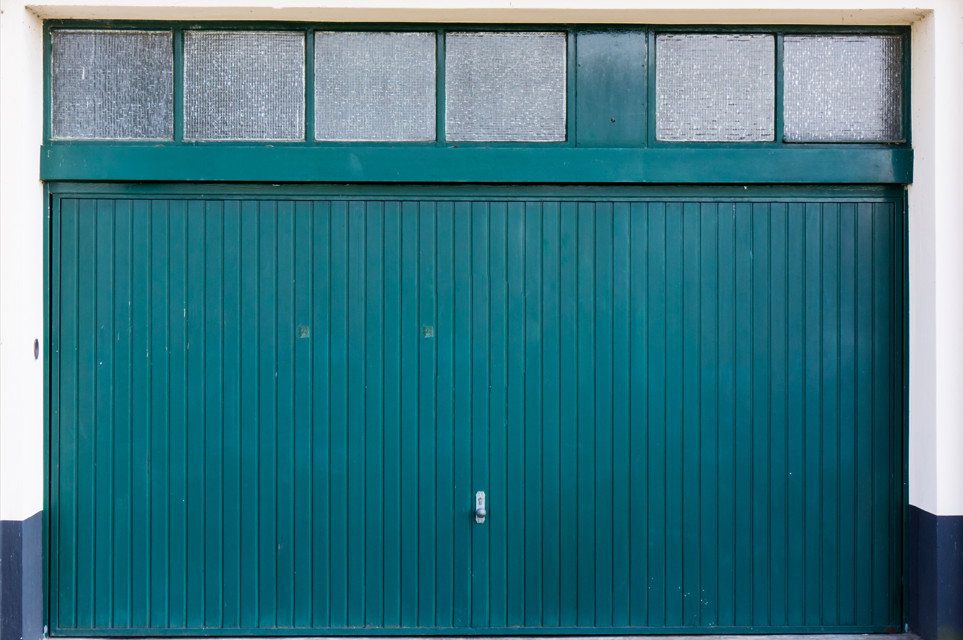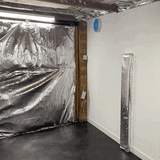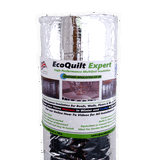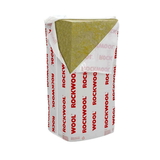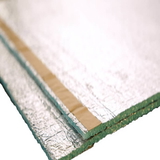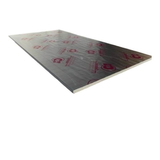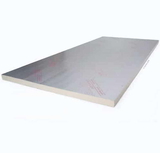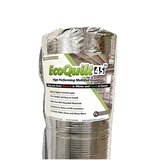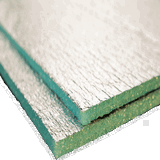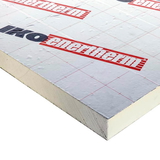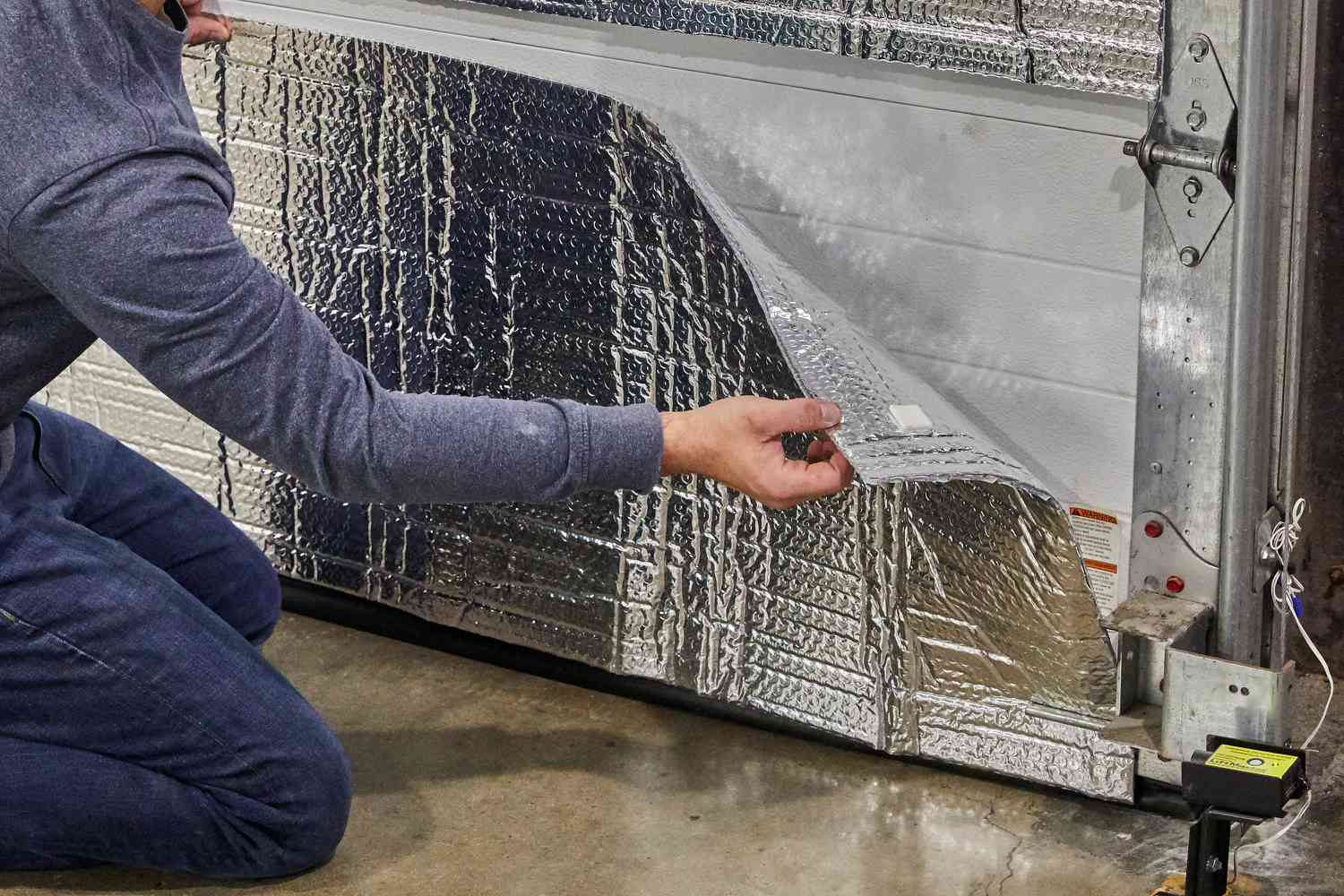- Blogs
- Garage Door Insulation: Tips To Keep Your Garage Warm And Energy Efficient
Garage Door Insulation: Tips To Keep Your Garage Warm And Energy Efficient
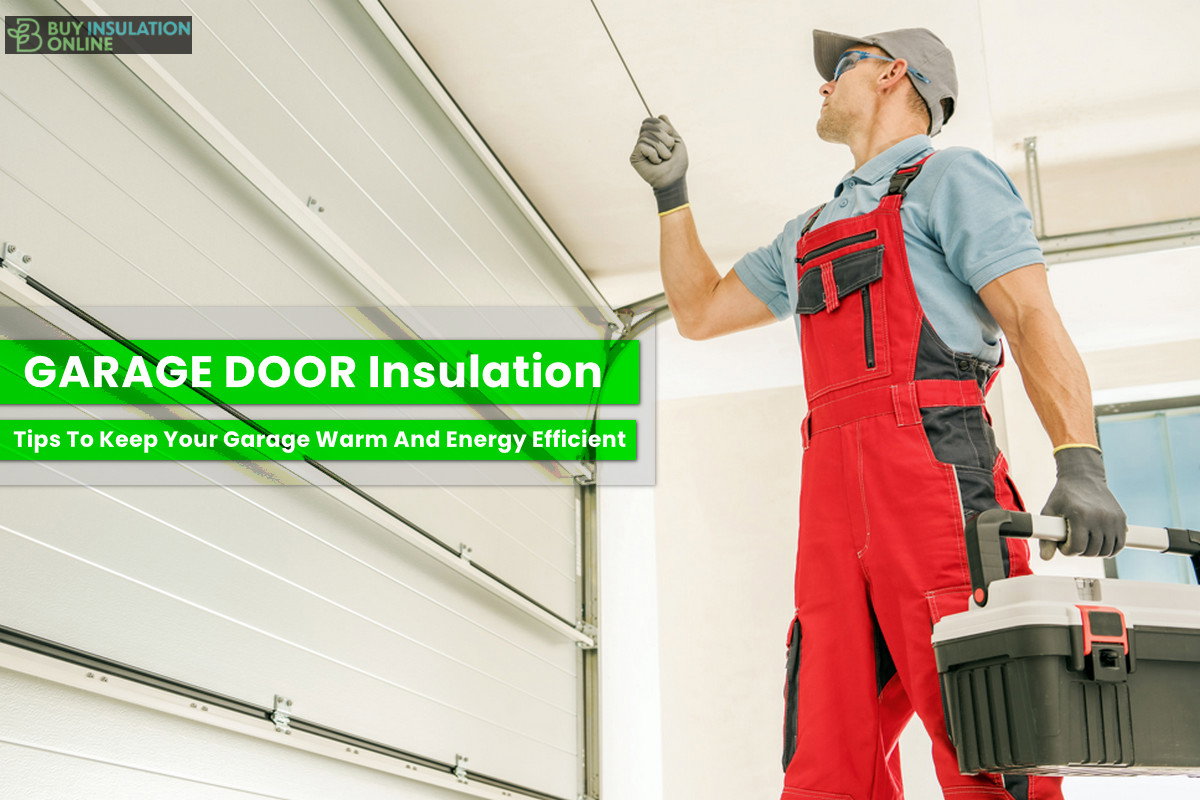
If you have a garage, you may know that it can get uncomfortably cold in winter and hotter in summer, making it a less pleasant space to work or spend time in. Garage door insulation can help regulate the temperature, reduce heat loss and make your garage more energy-efficient, which ultimately saves you money.
A well-insulated garage door not only reduces heat loss but also prevents cold air from entering your home through the connecting walls. Additionally, it helps create a perfect and comfortable space for various activities such as hobbies, workouts or storage.
There are different types of garage doors, and each door type requires a specific insulation kit, whether it is foam boards, reflective foil insulating layers or aluminium. We will explore the best insulation kit options available and show you how easy it is to install them, making it a cost-effective solution for insulating your garage door. So let's dive into some practical tips that will help keep your garage warm and energy efficient throughout the year.
What is Garage Door Insulation?![]()
Garage door insulation refers to the process of adding a layer of material to the inside of a garage door to improve its thermal efficiency.
It involves installing a specific type of insulation material to the garage door panels or creating an insulated barrier between the panels to prevent heat loss and regulate the temperature inside the garage.
Insulating your garage door can help keep the garage warmer in winter and cooler in summer, making it a more comfortable space to work in or store your belongings. It can also reduce your energy bills and improve your home's energy efficiency.
There are various types of garage door insulation, including reflective foil, foam board, and self-adhesive insulation, each with its own advantages and disadvantages.
Understanding The Importance Of Insulate a Garage Door
Garage door insulation is essential for maintaining a comfortable temperature in your garage and reducing energy costs.
The main benefit of a properly insulated door is to keep the cold air out during winter and the hot air out during summer. Insulated garage doors also improve energy efficiency by preventing heat transfer between the inside and outside of the garage. This means that you'll need less energy to heat or cool your home, resulting in lower utility bills. Additionally, insulated doors can help reduce noise levels from outside, creating a quieter environment inside.
Despite the initial cost of installation, installing garage door insulation is cost-effective in the long run. The energy savings alone make it worth investing in insulation, but there are other benefits as well.
Insulated doors can increase the value of your home and garage. Overall, garage insulation is an investment that pays off in both comfort and financial savings.
Evaluating Your Current Garage Door Insulation
Understanding the importance of garage door insulation is just the first step towards achieving a warm and energy-efficient space. The next step involves assessing the effectiveness of your current insulation.
It is essential to determine if your garage door has enough insulation or if it needs upgrading options to improve its efficiency. Assessing the effectiveness of your garage door insulation involves carrying out an inspection to identify any gaps, cracks, or damage that may compromise its efficiency.
Check for air leaks around the edges of your garage door, as these can significantly impact your energy bills by allowing cold air in and warm air out. If you notice any signs of wear and tear or poor installation, you may need to consider upgrading options that will provide better thermal protection.
Upgrading options are essential when it comes to improving the energy efficiency of your garage door. Installing a new insulated garage door or adding more insulation to an existing one can help reduce heat loss and save on heating bills.
Additionally, weatherstripping around the edges of your garage door can also help seal gaps and prevent drafts from entering your space. By making these upgrades, you can create a more comfortable and cost-effective environment in your garage while reducing your carbon footprint.
Garage Door Insulation Ideas
When it comes to insulating garage doors, choosing the right insulation materials is crucial for energy efficiency and cost-effectiveness. There are many options available in the market, but not all of them are suitable for multiple garage door types available today. Some of the most popular insulating materials used for garage door insulation include:
-
Fibreglass insulation: This type of insulation is made of small fibres of glass and comes in batts or rolls. Fibreglass insulation is an affordable and widely used option for garage door insulation.
-
Foam board insulation: Foam board insulation is made of rigid foam panels and can be cut to fit the size of the garage door panels. It is a more expensive option than fibreglass insulation but offers better thermal resistance.
-
Reflective foil insulation: Reflective foil insulation is made of aluminium foil and is installed on the inside of the garage door. It reflects radiant heat, making it an effective option for areas with high temperatures.
-
Cellulose insulation: Cellulose insulation is made of recycled paper and can be blown into the garage door panels. It is an eco-friendly option and provides excellent insulation.
-
Self-adhesive insulation: Self-adhesive insulation is made of foam or fibreglass and comes with an adhesive backing. It is easy to install and can be cut to fit the size of the garage door panels. One of the best examples for this type is the Thermawrap self-adhesive garage door insulation, a self-adhesive reflective aluminium foil bubble insulation
Installing Insulation On Your Garage Door
Here are some general steps to follow for installing insulation on your garage door:
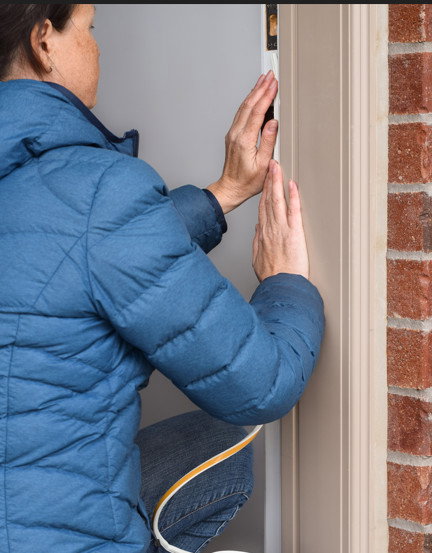
-
Measure the garage door panels: Measure the width and height of each garage door panel to determine the amount of insulation material needed.
-
Choose the insulation material: Select the type of insulation material that best suits your needs and budget.
-
Clean the garage door panels: Clean the garage door panels to remove any dirt, dust, or debris.
-
Cut the insulation material: Cut the insulation material to fit the size of the garage door panels. Use a utility knife or scissors to make precise cuts.
-
Install the insulation material: Depending on the type of insulation material, there are different installation methods. For fiberglass or foam board insulation, insert the insulation into the garage door panels and secure them in place with adhesive tape or clips. For the foil insulating layers, simply attach them to the garage door panels with adhesive or double-sided tape. For self-adhesive insulation, peel off the backing and apply it to the garage door panels.
-
Seal any gaps: Once the insulation is installed, seal any gaps or cracks around the garage door with weatherstripping or caulk to prevent air leaks.
-
Test the garage door: After insulation installation, test the garage door to ensure it opens and closes smoothly without any obstruction.
Keep in mind that the specific steps for installing insulation on your garage door may vary depending on the type of insulation material and garage door you have. We strongly recommend following the manufacturer's instructions carefully to ensure proper installation.
Garage Door Insulation Kits:
If you're looking to take up garage door insulation as a DIY project, you'll find many garage door insulation kits on the market today. These kits typically come with all the necessary materials and instructions to insulate your garage door yourself. Simply follow the steps above for a successful DIY garage door insulation.
DIY garage door insulation kits can be a cost-effective and easy way to insulate your garage door. However, it's important to carefully follow the manufacturer's instructions and use the recommended safety equipment to ensure a safe and effective installation.
Frequently Asked Questions
How Much Money Can I Save On My Energy Bills By Insulating My Garage Door?
The amount of money you can save on your energy bills by insulating your garage door in the UK depends on several factors, including the size of your garage, the type of insulation material you use, and the current level of insulation in your home. However, in general, insulating your garage door can lead to significant energy savings and lower your heating bills.
According to the Energy Saving Trust, insulating an uninsulated garage door can save you up to £100 per year on your heating bills. This estimate assumes that the garage is attached to the house and is used as a living space or for storage. The savings may be higher if the garage is detached or used for other purposes, such as a workshop or home gym.
The actual amount of money you can save will depend on several factors, such as the insulation material used, the U-value of your garage door, and the overall energy efficiency of your home. A professional energy assessment can help you determine the potential savings and identify other areas for improving energy efficiency in your home.
Can I Install The Insulation Myself, Or Should I Hire A Professional?
When considering insulating your garage door, it's essential to weigh the pros and cons of installing the insulation yourself versus hiring a professional.
While DIY insulation may save you money in labour costs, it's important to note that garage doors can be challenging to work with and require specialised tools and knowledge. Additionally, incorrectly installed insulation may result in gaps or air leaks, reducing its effectiveness.
Hiring a professional ensures that the job is done correctly and efficiently, although it may come at a higher cost. Ultimately, the decision between DIY insulation and hiring a professional depends on your level of experience and comfort with home improvement projects.
Will Insulating My Garage Door Help Reduce Noise From Outside?![]()
Garage door noise reduction is a common concern among homeowners, and insulating the garage door is one potential solution. However, the effectiveness of insulation materials in reducing noise depends on various factors such as the density and thickness of the material.
While it can help to some extent, it may not completely eliminate external noises. As insulation experts, we would recommend choosing high-density insulation materials that are specifically designed for noise reduction purposes.
It's important to note that insulation alone may not be enough to reduce all types of noise, and additional measures may be required depending on the source of the sound. Ultimately, reducing garage door noise will not only make your home quieter but also contribute towards creating a sense of belonging and peacefulness within your living space.
What Types Of Insulation Are Best Suited For Humid Climates?
When choosing a garage door insulation material for humid climates, it's important to consider the material's ability to resist moisture and prevent mould or mildew growth. Here are some insulation materials that are well-suited for humid climates:
-
Closed-cell foam insulation: Closed-cell foam insulation is a type of insulation material that has a high resistance to moisture and mould growth. It is made of a dense, closed-cell structure that does not absorb water, making it ideal for humid environments.
-
Reflective foil insulation: Reflective foil insulation is a type of insulation material that reflects radiant heat and prevents moisture from entering. It is often made of aluminium foil and is easy to install.
-
Mineral wool insulation: Mineral wool insulation is made of rock or glass fibres and has a high resistance to moisture and mould growth. It is an effective option for humid environments and can be used in both residential and commercial applications.
In addition to choosing the right insulation material, it's important to ensure proper ventilation in your garage to reduce humidity levels. This can include installing vents or fans to promote air circulation and prevent moisture buildup. A professional garage door insulation installer can help you choose the best insulation material for your specific needs and ensure proper installation for optimal performance in a humid climate.
Will Insulating My Garage Door Affect Its Ability To Open And Close Smoothly?
When considering insulating your garage door, it is important to take into account the potential impact on its ability to open and close smoothly. While adding an insulating layer to the garage door may add weight to the door, which can cause strain on the opening mechanism, proper maintenance tips can help alleviate any issues.
It is also important to choose the right insulation materials for your particular garage door and climate in order to ensure maximum efficiency and effectiveness. Consulting with a professional insulation specialist can provide valuable insight and guidance in making these decisions.
Conclusion:
Garage door insulation is a great way to keep your garage warm during the winter months and reduce energy bills. The amount of money you can save on your energy bills will depend on various factors such as the size of your garage space, the insulation material used, and the current state of your garage door.
In addition to reducing energy bills, insulating your garage door can also help reduce noise from outside. This is especially important if you live in an area with high traffic or near a busy street.
In conclusion, insulating your garage door is a wise investment in terms of energy efficiency and comfort. By hiring a professional installer and choosing suitable insulation materials, you can enjoy all the benefits without compromising on functionality.
For trade prices on reflective foil insulation, mineral wool batts, foam boards and other garage insulating materials visit Buy Insulation Online. When you buy from us, you take a step further in reducing your carbon footprint as we plant a tree in your name, with every order!

Samuel Hitch
Managing Director
Buy Insulation Online.
Leave A Reply
Your feedback is greatly appreciated, please comment on our content below. Your email address will not be published. Required fields are marked *
